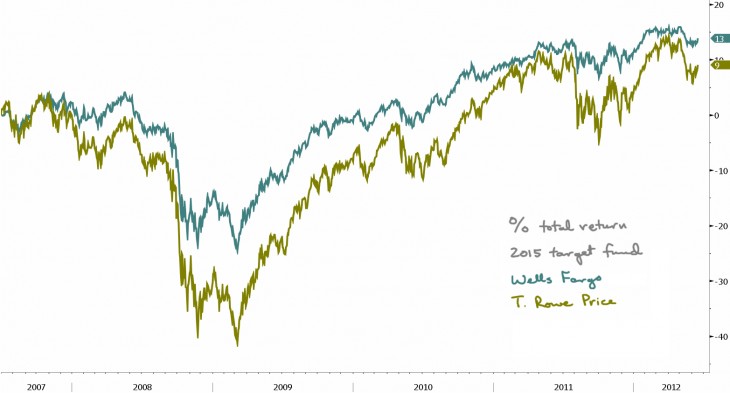Nearby Target

A recent article by Ron Lieber in the New York Times did a good job of exploring some of the issues regarding target-date mutual funds by using the contrasting examples of 2015 funds from Wells Fargo (WFQEX) and T. Rowe Price (TRRGX). The total returns of the two are shown above (starting when WFQEX opened for investment; TRRGX predated it).
One is focused on “avoiding large losses close to retirement” and the other on “not outliving your money during 30 years of retirement.” You can tell which one is which by the volatility of the returns above.
The differences are very important for investors, since these types of funds are often the default options in defined contribution plans. But many investors don’t know whether they are in “to” (the target date) or “through” funds, or how aggressive or conservative their manager is versus others and why. Or, for that matter, whether the statistics in the pretty fund brochures or the investment theory behind a manager’s approach are representative of the world we will see over the coming years. (Here’s a bad bet in the past-as-prologue category.)
It’s important for investment firms to get this right too. Target-date funds represent one of the few bright spots in a mutual fund industry that is facing stiff competition from ETFs, demographic challenges, investor apathy, and self-inflicted wounds from over-promising and under-delivering during the fat years. The next time we get into a period when there are dramatic differences in the performance of asset classes, some firms will have target-date funds that look good and some will look bad. Unfortunately, there are investors in these one-decision vehicles that will get hurt along the way because they owned a fund that was different than they thought. The problems for funds will pale in comparison to that. (Chart: Bloomberg terminal.)
An article that I wrote over three years ago is still a good explanation of some of the issues regarding target-date funds.









